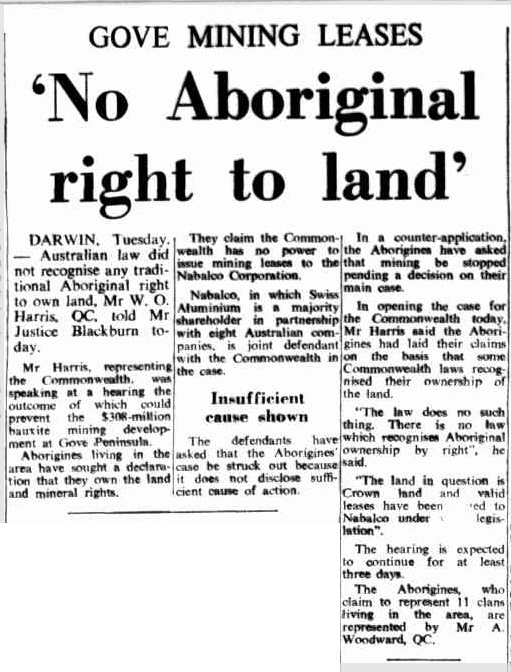Gove Land Rights Case
27 April 1971
The Yolngu people ask the courts to recognise their rights to their traditional lands and stop a mining development.
The Yolngu argued that Yolngu laws and customs gave them the right to the land and they had not given this up. The Supreme Court of the Northern Territory dismissed the case; Australian law as it then stood did not include any concept of native title.
In his judgement Justice Blackburn found that the Yolngu had demonstrated their long association with the land, and its central place in their law and culture. However, they had not demonstrated exclusive ownership of the land, which therefore belonged to the Crown which had ‘settled’ it. Gove Peninsula belonged to the Australian Government, which could do whatever it chose with it. Or, more simply: Aboriginal and Torres Strait Islander peoples belonged to the land, but the land did not belong to Aboriginal and Torres Strait Islander peoples.
The case was unsuccessful but furthered the movement towards native title in Australia. The Yolngu eventually received the rights to their land in 1978. The mining lease, which they had fought to stop, went ahead with the consultation of the Yolngu.
The Canberra Times, 19 March 1969

National Library of Australia
Description
A newspaper article published in The Canberra Times, 19 March 1969. The article is a report on court proceedings taking place in Darwin. The case revolved around the Yolngu people and their claim of traditional ownership of the Gove Peninsula.